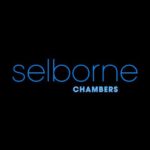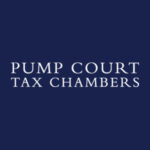Continue reading "Tax: The limitations of Ramsay"
Tax: The limitations of Ramsay

Mr Mark Dunsby participated in a tax avoidance scheme devised and promoted by De Sales Promotions Ltd. As part of the scheme, in March 2013, Mr Dunsby had a company, of which he was sole shareholder and director, issue a non-voting share to a non-resident individual, Mrs Fiona Gower. Mrs Gower established a trust and settled the share in the trust, with the benefit of any dividends being for Mr Dunsby, and Mr Dunsby’s company paid £200,000 as a dividend in respect of the settled share. As a result of the scheme, Mr Dunsby received £195,400. HMRC issued a closure notice dated 31 March 201...
Marlborough DP Ltd (MDPL) operated a dental practice, through which a Dr Thomas, its director and sole shareholder, provided dental services. It had instituted a ‘remuneration trust’ (RT), which it had stated to be for the benefit of persons who had provided or might in the future provide services, custom or products to MDPL. MDPL made ‘contributions’ to the RT which were said to reflect ‘part of the economic cost to [MDPL] of earning its profits’. MDPL then deducted its contributions to the RT as business expenses in computing its profits for accounting purposes, and claimed deductions ...
This was an appeal concerning a tax avoidance scheme designed to allow shareholders in private companies to extract profits without paying income tax on them.
Prior to entering into the scheme, T was sole director and shareholder of M Ltd. The scheme had three steps:
Two schemes to avoid the payment of National Non-domestic Rates (NDR), by granting a short lease of unoccupied properties to special purpose vehicle companies (SPVs), which were then allowed to be dissolved, either by voluntary winding up or as dormant companies. Under the NDR legislation, the liability to pay rates on unoccupied property fell on the ‘owner’, being the person entitled to possession, which would include a lessee. However, properties owned by a company being wound up voluntarily were excluded under the applicable Regulations from being subject to NDR at all.
The cla...

Continue reading "Tax: The limitations of Ramsay"

Continue reading "SDLT: No question of motive"
The appeal concerned a tax avoidance scheme by which employers paid remuneration to their employees through an employees’ remuneration trust in the hope that the scheme would avoid liability to income tax and Class 1 national insurance contributions. The question on appeal was whether an employee’s remuneration was taxable as their emoluments or earnings when it was paid to a third party in circumstances in which the employee had no prior entitlement to receive it himself or herself.
The employing companies, including RFC, operated the tax avoidance scheme in the tax years between...

Continue reading "Tax Planning: The gain plan"
The appellants (CB and JB) brought an appeal against a decision of the First-tier Tribunal (FTT) on 25 June 2013 in which it dismissed the appellants’ appeals against closure notices by HMRC containing amendments to the appellants’ self-assessment tax returns for 2002-03. The effect of the amendments was that the appellants were liable to capital gains tax (CGT) of £849,644 and £317,417 respectively of additional gains under s87 of the Taxation of Chargeable Gains Act 1992 (TCGA) and supplemental charges under TCGA, s91.
In 1969, the ap...